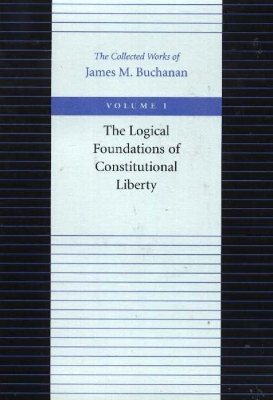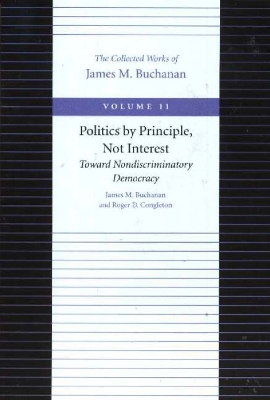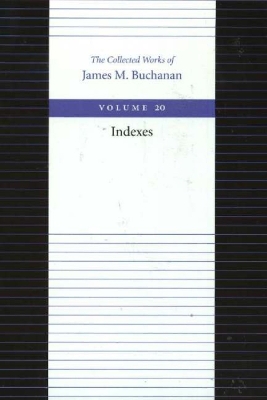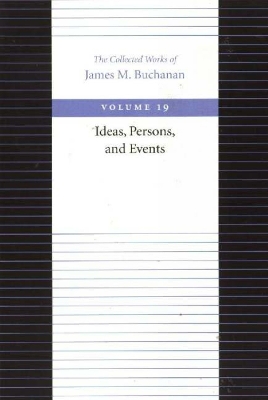The Collected Works of James M. Buchanan
4 total works
v. 1
The thirty-one papers presented in this volume offer scholars and general readers alike a comprehensive introduction to the work of one of the greatest economists of the modern era. Many of Buchanan's most important essays are gathered in this inaugural volume of the twenty-volume series from Liberty Fund of his 'Collected Works'. The essays are arranged thematically and so present a complete perspective on Buchanan's work. The six sections include: introduction; politics without romance; public finance and democratic process; the economist and economic order; ethics and economics; the reason of rules. The editors have focused on papers that Buchanan has written without collaboration and which present Buchanan's earlier, classic statements on crucial subjects rather than his subsequent elaborations which appear in later volumes in the series. Included, too, is Buchanan's Nobel address, 'The Constitution of Economic Policy', and the text of the Nobel Committee's press release explaining why Buchanan was awarded the prize for Economics in 1986. The volume also includes Buchanan's autobiographical essay, 'Better Than Plowing', in which he gives not only a brief account of his life, but also his own assessment of what is important, distinctive, and enduring in his work. The foreword by the three series editors will be valuable to all readers who wish to engage the challenging but epochal writings of the father of modern public choice theory.
Politics by Principle, Not Interest Toward Nondiscriminatory Democracy
by James M. Buchanan
Published 25 June 2003
This volume presents a comprehensive index to the entire series of 'The Collected Works of James M Buchanan'. Included is an annotated copy of the entire curriculum vitae, indicating in which volume in the series the various items appear and, correspondingly, those items that have been omitted. As the editors observe, "This is a series that no serious scholar of public choice theory, public economics, or contemporary political theory will want to be without. It is a series that will also appeal to the general student of liberty, for Buchanan has -- perhaps more than any other contemporary scholar -- helped us to view politics without the romantic gloss that characterises so much normative political theory and that slips unthinkingly into so much popular commentary. Buchanan has been a resolute defender of 'the ideal of a society of free and responsible individuals,' and has been a painstaking analyst of the institutional structure that might best support such a society. Buchanan stands with von Mises, Hayek, Popper, and Friedman as one of the great twentieth-century scholars of liberty."
This final volume (save for the Index) in Liberty Fund's 'The Collected Works of James M Buchanan' acquaints us most intimately with the man himself. Included are essays and short pieces that shed light on Buchanan's view of the world. Ranging from personal reflections on the art and science of economics, to restatements of his central themes and reminiscences of his encounters and collaborations with other great thinkers, this volume presents James Buchanan as a multidimensional human being, not just as a great economic and political thinker. The thirty-three pieces collected in IDEAS, PERSONS, AND EVENTS are grouped into these categories: autobiographical and personal reflections; reflections on fellow political economists; political economy in the post-socialist century; reform without romance. As Hartmut Kliemt states in his foreword, "The personal and the theoretical are often inseparably intertwined in the essays of this volume... As a case in point, consider James Buchanan's account of his relationship to Frank Knight. This account not only sheds some interesting light on the personal element in the development of science, it also offers some new perspectives on the concept of the 'relatively absolute absolutes', which has been so central to Buchanan's thinking in general."



